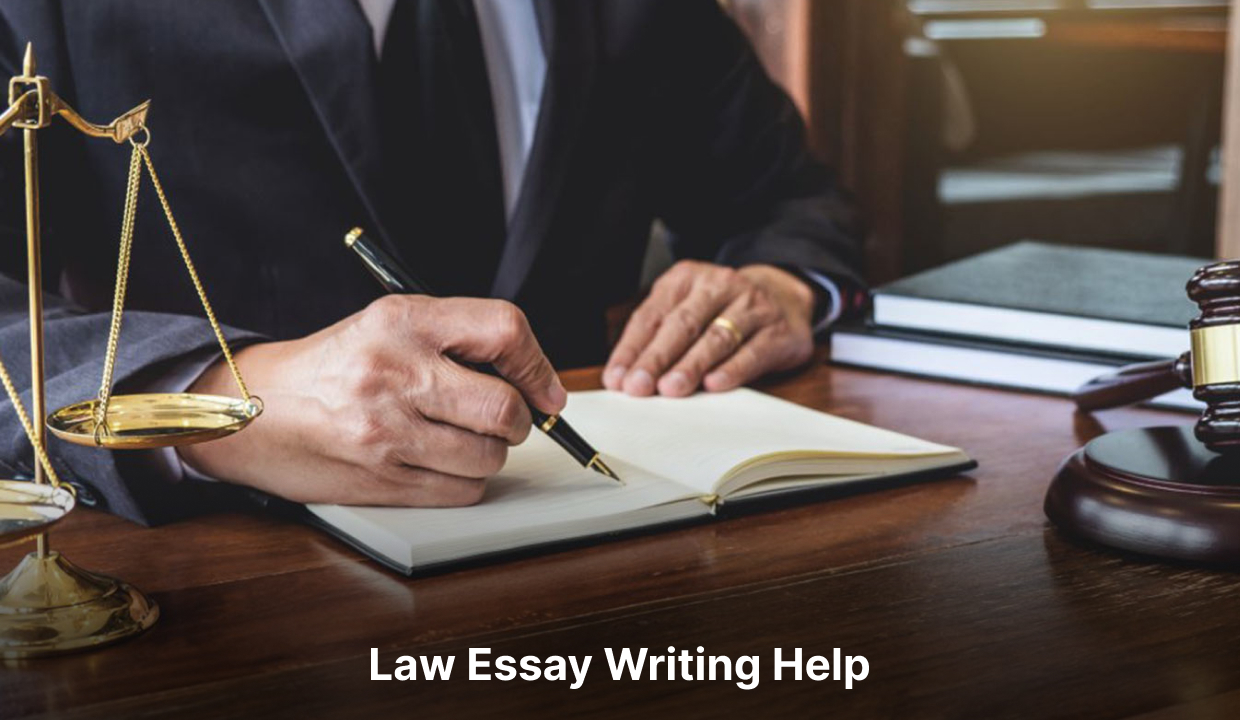
Contents
Introduction
Writing law essays requires professionals to research, analyse facts, and present them in legal memorandums and contract agreements. Adequate legal writing knowledge can help individuals communicate their work and resolve client matters confidently. Learning the nuances of legal writing can make your arguments more persuasive and add credibility to your case. However, law essay help services are always here to give you high-quality essay writing and other academic services. With the help of these services, you can elevate your writing to new heights. This blog defines legal writing, teaches you how to write better legal documents, and discusses some extra guidelines for creating vital legal documents.
Methods of Writing an Essay on Legal Studies
If you want to learn how to write an essay on the law, then follow these steps:
1. Know Your Audience
Every writing piece usually begins with an understanding of your audience and platform. Building a persona can help you write with more focus and in a tone that helps hold the reader's attention. Your writing can be informational, conclusive, persuasive or descriptive.
2. Research Your Topic
In legal writing, presenting facts and your viewpoint objectively is essential. You can learn terminology and expand your expertise by researching the subject of your essay. To bolster your writing, take a look at court documents. Knowing how to write appropriately will boost your writing's self-assurance and make the subject more pertinent to the conversation. To support your writing, read widely. You can also speak with an Online Law Assignment expert to learn more about the topic.
3. Review Educational Resources
If you want to improve your writing skills, consider taking legal writing courses. Consider enrolling in free online classes, seminars, and writing workshops to enhance the effectiveness of your legal writing. You can learn about legal principles in these courses, and they can also show you how to improve your writing and editing skills.
4. Read Legal Writing
Reading complex and well-written legal texts will help you write better. You may better understand how other legal experts talk about and clarify complicated legal matters. Read legal rulings, statutes, resolutions, and briefs on the topics that catch your attention. Make notes as you read on how to write better, and take note of the author's tone and style.
5. Create an Outline
An outline is typically a summary of the contents of an entire article. It can be utilised to generate ideas and produce an organised, well-rounded paper. You can achieve this by segmenting the essential components of your essay and developing them further, following the necessity, content, and relevancy. To create a paper outline, follow these steps:
- Decide on your paper's theme or thesis statement.
- Select a topic for your paper's central argument.
- Regarding your central topic, arrange your supporting points logically and numerically.
- Make sure your paragraphs are transitioned well.
6. Be clear and concise
Drafting legal documents requires being able to write clearly and concisely. Avoid jargon, simplify complex sentences, and eliminate repetition. This helps you write documents that are easy to read, understand, and convey your message. Here are some tips to follow:
- Avoid long words and complicated language in your document.
- Keep technical terms to a minimum.
- Vary the length of sentences.
- Minimise the use of generalisations.
- Use qualifiers and intensifiers appropriately.
7. Pay attention to Your Sentences
Make your writing look professional by learning to write active sentences in Law Essay Writing. Using the active voice will make Your work more concise and clear. When writing a legal document, language form is quite important. By strengthening your sentence structure, you may make your work more compelling. Think about the following advice:
- To ensure that ideas are linked and connected, use transition words.
- Ensure that each sentence contains clear information.
- Utilise active verbs and the active voice.
- Observe conventional grammatical rules.
8. Use Proper Punctuation Marks
You may strengthen your document's structure and quality by utilising appropriate punctuation. To improve your document, consider practising and understanding more about the implications and applications of various punctuation marks. Here are some pointers for correctly punctuating legal documents:
- Punctuation and quotation marks should be kept apart.
- Make sure the commas are used and placed correctly.
- The en-dash and the em-dash should be distinguished.
- Use the proper colon or semicolon.
9. Use a Professional Tone
Writing for legal purposes requires a professional tone to demonstrate a thorough knowledge of legal concepts. It is essential to maintain a neutral tone when drafting a legal document. Using the active voice, you can make your writing more transparent and more engaging.
10. Use Quotes
Using legal resources when writing a legal analysis can help you establish the credibility of your arguments and make a solid case. Citing information correctly can help you effectively explain your arguments to a jury. Legal citation laws vary by jurisdiction, so be familiar with local citation styles.
11. Proofread and Fact-Check the Document
After completing the draft, ensure your grammar, spelling, and formatting are accurate. It helps to showcase your attention to detail and professionalism. Verify factual details in the report, such as names and designations of people, descriptions of events, captions for photographs, and other vital details. Consider hiring another professional to edit your work, such as writing specialists, assignment editing and proofreading services. They provide services as per the guidelines of your university.
Tips to Improve Your Legal Writing Skills
As a legal professional, you can improve your writing skills to develop communication skills in various fields. Legal writing abilities can help you backup your claims, clarify your points, and show that you know the law. It makes your argument more persuasive and gives clarity. Demonstrating a thorough understanding of the legal system can build your reputation as an attorney and gain clients to help advance your career. Education professionals also benefit from effective writing, as it can help them impart legal knowledge to students and prepare them for careers in law. Following are some study aids:
Stay Organised and Pay Attention During Class
Paying attention during class can help you take in more information and retain it for longer. Consider taking notes to use as a reference while revising.
Enter Legal Writing Contests
You can develop your writing skills by participating in legal writing competitions. They could also aid in your confidence-building.
Challenge Yourself to Write Law Journal Notes
Completing a journal note can give you a sense of accomplishment. Continue refining your draft until you have completed a piece that meets publication standards.
Ask for Feedback
After completing your legal document, you can seek feedback from your superiors or legal professionals. You can adjust as needed based on their input.
Demonstrate Knowledge and Hold on to the Subject
Law is an ever-evolving field that requires a proper understanding of the subject matter. Nevertheless, knowledge is only sufficient if demonstrated by the ability to apply the law to obtain a legal answer.
Logical Flow and Relevance
The legal essay should be organised logically and methodically, starting with identifying the subject or question and moving through analysis, support, and conclusion.
Formal and Reassuring Language
A common mistake some students make in essay writing is using informal language such as, "She made the wrong decision because..." Instead, a good essay would say, "The argument given is disjointed for the following reasons...".
Personal Insight and Perfect Context of the Legal Essay
What makes a literary work stand out requires originality, insight and personal reasoning by the author. It displays an independent and intellectual demeanour, which excels when supported by authority.

Conclusion
In this blog, we have learned how to write a law essay. At the same time, no universal pattern shows how to write an effective law essay; law standards, accurate grammar, and citing every thought different from yours come first. A good author ensures a broad and prolific context that challenges and informs the analysis in the paper. It should point the reader to a related section in the essay and be page-specific. The best way to incorporate authority is to integrate cases to develop analysis. Whenever you need help, be it the entire paper or any part of it, custom law assignment services are always here to provide you with high-quality law essay writing and other academic services. This will help you write an excellent essay that will fetch you good grades and save you from plagiarism and writing problems.







